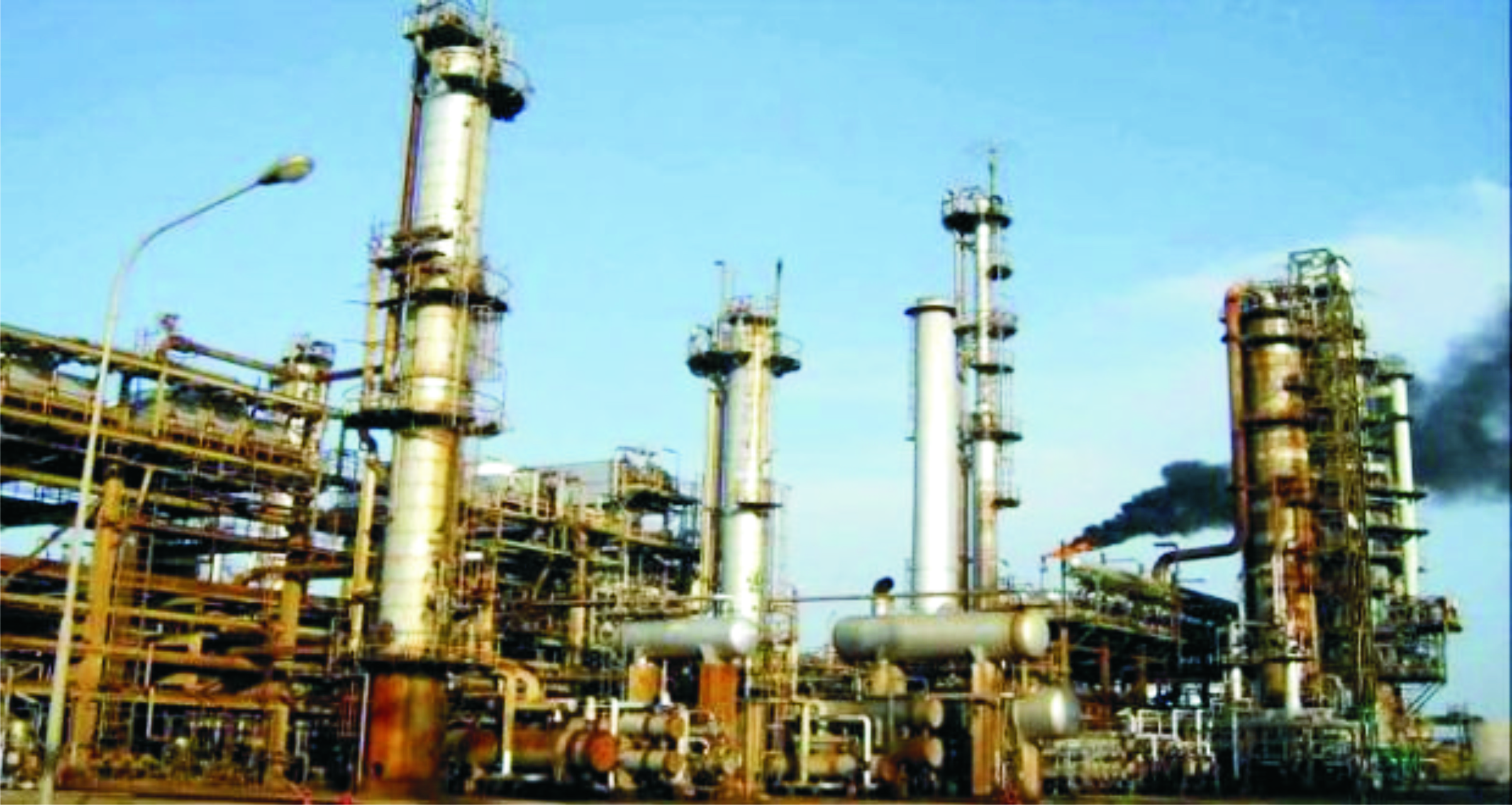Editorial
Sell Refineries, Now!

About a forthnight ago, Nigerians were shocked with the news that the four refineries owned by the Federal Government recorded a total loss of N406.62 billion in two years. In fact, the audited report of the refineries located in Port Harcourt, Kaduna and Warri with a combined capacity of 445,000 barrels per day have been running at a loss for more than 10 years now.
Apart from operating far below their installed capacity over the years, forcing the country to rely largely on importation of refined petroleum products, they have become huge drain pipes for the country. They also, have remained in a state of disrepair for many years despite several reported repairs and the often bandied Turn-Around-Maintenance, TAM.
According to the latest audited financial statements of the plants, the Kaduna Refinery recorded a loss of N64.34 billion in 2018, down from N111.89 billion in 2017, while the Warri Refinery posted a loss of N44.44 billion in 2018, compared to N84.60 billion in the preceding year. Port Harcourt Refinery on its part lost N55.76 billion in 2017 and N45.59 billion in 2018.
To add insult to injury, the Group Managing Director, GMD, Nigerian National Petroleum Corporation, NNPC, Mallam Mele Kyari last week at a summit organised by Seplat told the country that all the refineries were idle.
“Today, unfortunately, all our four refineries are down. “In Nigeria today, we are importing practically every petroleum product that we consume in this country. “But are working to make sure that we are able to fix our refineries”, the GMD told the summit.
Unfortunately, The Tide does not agree with Mallam Kyari. We believe that the nation has had enough of trying to fix the refineries. Past experiences have shown that such endeavours would be efforts in futility, an exercise that would end up frittering away scarce resources and lining the pockets of private individuals, while the refineries remain comatose.
We are also worried by the GMD’s pronouncement that plans were on to repair the refineries again. Indeed, past attempts to repair or turn around the refineries have left the plants worse than they were and billions of naira spent to no positive effect. This sad merry-go-round has left the national assets as huge liabilities and drain on the economy. Moreso, the idle and moribund refineries are monthly serviced with humongous grants, imprest and other expenses with staff earning luxury salaries, while contributing next to nothing to the national economy. In addition, staff of these plants still draw on national resources for estacodes for mostly phantom seminars, workshops and trainings across the globe.
That is why The Tide believes that it is time that the refineries are privatised or sold outrightly, without further delay. We say so because government, especially in Nigeria, has proven not to be a good businessman. Rather than sink another round of billions of naira that would serve better in other areas of our national economy in the refineries, only to continue to depend on importation for our domestic needs, the Federal Government should divest in the refineries without delay.
We expect the government to immediately put in motion machineries that would lead to the eventual sale of the bleeding assets. We think that rather than contemplate further investment in the refineries under any guise, the Federal Government should take a second but critical look at the issues surrounding the inability of private investors to build refineries, especially, the modular model in Nigeria.
According to the Department of Petroleum Resources, DPR, there are a total of 38 proposed modular refineries with capacities ranging from 5,000 barrels per day to 30,000 bpd, and a total capacity of 1.35 million bpd. However, out of the 44 refinery licences given out to private investors over the years, only a couple of projects, including the one being built by Dangote Industries Limited in Lagos, are underway.
It is therefore, pertinent that the Federal Government seeks ways to motivate the private investors to get to work and set up refineries that will not only service domestic needs but meet demands from other countries, rather than recycling the ineffective and wasteful venture of the government-owned refineries.
Indeed, the process of divesting and eventual sale of the refineries would neither be easy nor without turmoil. But the government must muster the political will and boldness to deal with the situation. Afterall, former national institutions like the NICON-NOGA Hilton, National Electric Power Authority, NEPA, NITEL, among others have been privatised or sold off.
We expect the appropriate authority to commence serious engagement with relevant stakeholders on the modalities of ending government’s involvement in the moribund refineries. We take this stand with the belief that the country can no longer afford to waste scarce resources and indirectly patronise private individuals who feed fat on the malfeasance that are Nigerian refineries, while ordinary Nigerians bear the brunt of the vicious circle.
Editorial
Fubara: Celebrating A Leader At 51

Editorial
Beyond Accessing Bonny By Road

Editorial
Time For GL 17 In Rivers

-

 Niger Delta4 days ago
Niger Delta4 days agoPDP Declares Edo Airline’s Plan As Misplaced Priority
-

 Sports4 days ago
Sports4 days agoSimba open Nwabali talks
-

 Nation4 days ago
Nation4 days agoHoS Hails Fubara Over Provision of Accommodation for Permanent Secretaries
-
Niger Delta5 days ago
Stakeholders Task INC Aspirants On Dev … As ELECO Promises Transparent, Credible Polls
-
Niger Delta4 days ago
Students Protest Non-indigene Appointment As Rector in C’River
-
Rivers5 days ago
Fubara Restates Continued Support For NYSC In Rivers
-

 Oil & Energy5 days ago
Oil & Energy5 days agoNUPRC Unveils Three-pillar Transformative Vision, Pledges Efficiency, Partnership
-

 News5 days ago
News5 days agoDiocese of Kalabari Set To Commence Kalabari University

